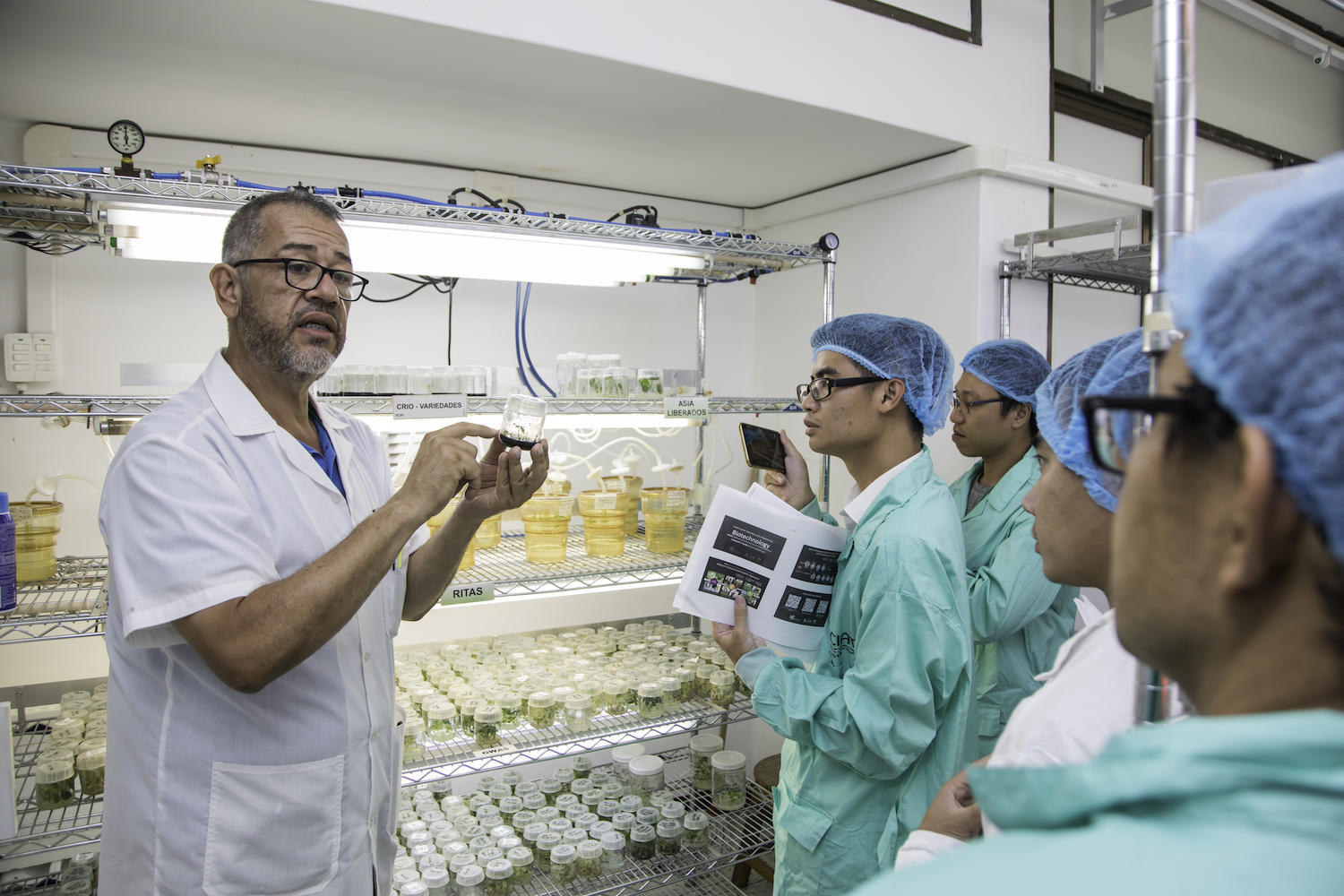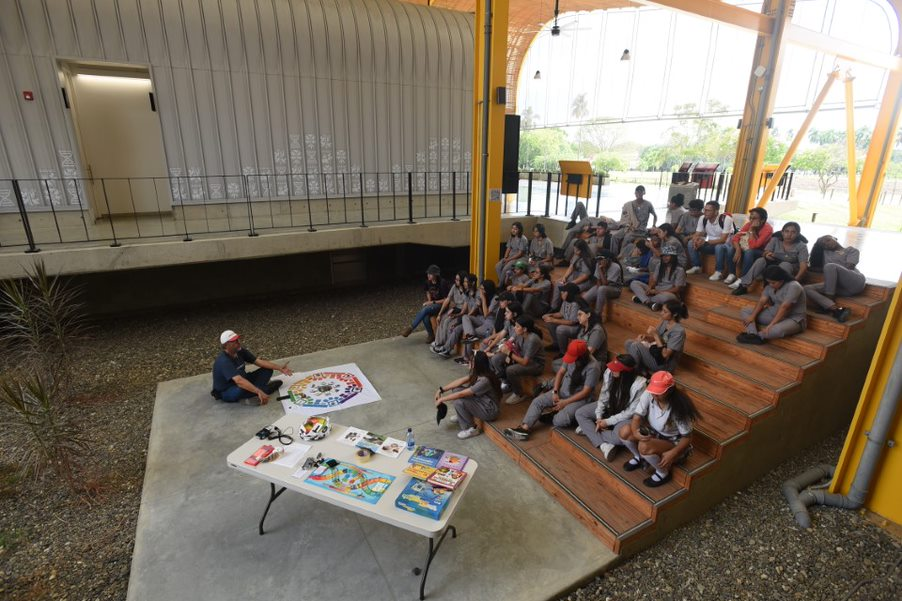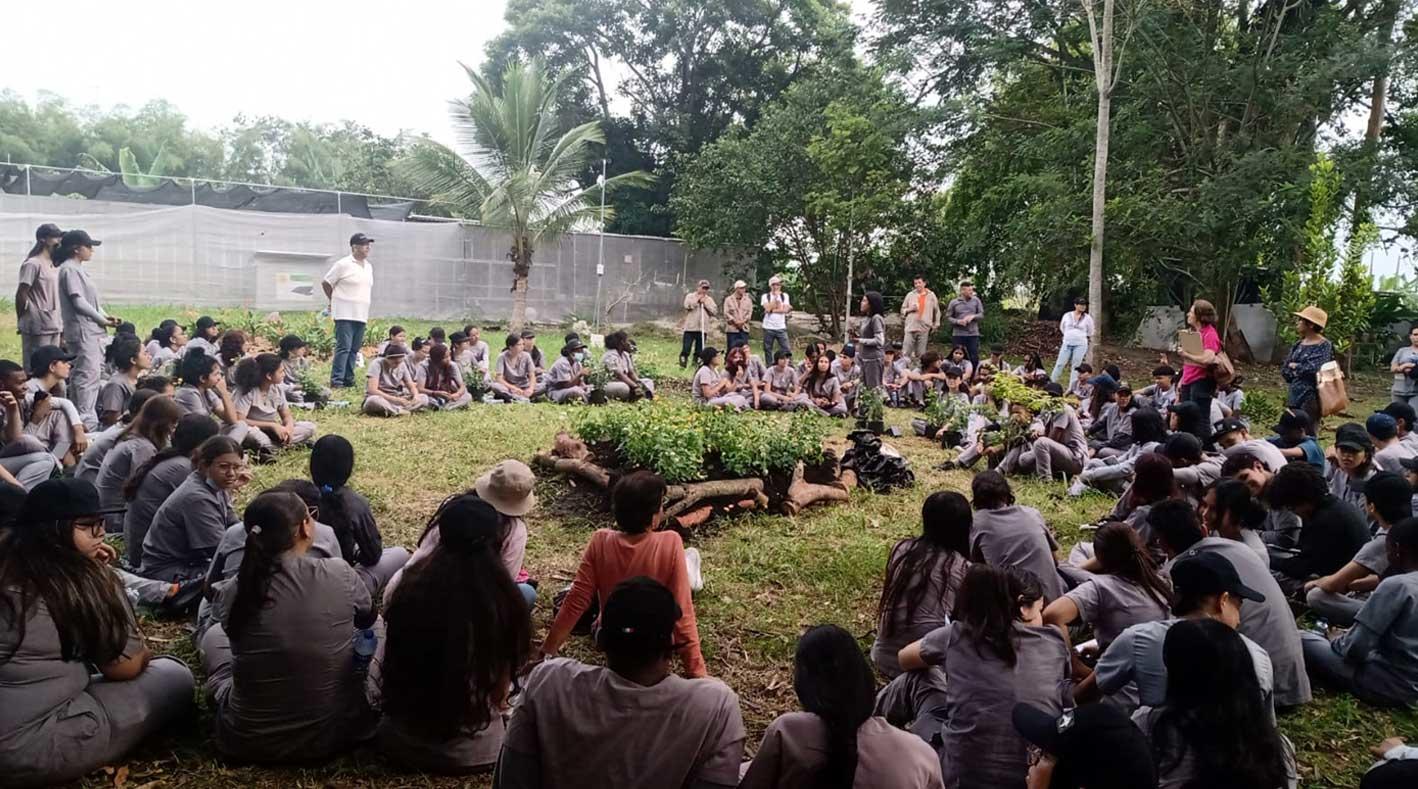Blog "El Profe": The Alliance Scientist who Implemented Tissue Culture Procedures and Techniques

Roosevelt Escobar has been at the Alliance of Bioversity International and CIAT for 34 years; he holds a degree in Biology and Chemistry from Santiago de Cali University. He has been nicknamed "El Profe" (short for "professor" in Spanish), as he has brought the latest science and technology to multiple rural and public schools, sharing his knowledge in a simple, clear, and passionate way, inspiring young to fall in love with science, making a huge impact on their personal interests and professional lives.
Since Roosevelt joined the Alliance, he has been involved in the development and tailoring of tissue culture procedures and techniques within the Biotechnology Program. The resulting methods have helped make these techniques available for students and smallholder farmers, using minimum inputs and self-made equipment.
One of the key initiatives led by Roosevelt was in vitro cassava propagation at the farm level – one of many 'tissue culture' applications that ensure that farmers can access disease-free planting material, including virus-free varieties adapted to their environment, allowing them to get a fair return for their efforts.
Applying propagation techniques and having access to clean material from the Future Seeds genebank, it is possible to offer farmers clean and high-yielding planting material, with the certainty that: (1) plants are disease-free; (2) they correspond to the clone or variety needed in the production area; (3) confusion or mixing varieties is avoided; and (4) a massive, quick, and efficient propagation program is implemented for a single plant material.

Roosevelt developed the in vitro propagation technique, and he has also engaged in training the young researchers who have joined the cassava tissue culture and cryopreservation laboratory during their academic education, either through training courses, support with thesis work, or internships.
He is one of the pioneers of the Alliance’s Biotechnology in the Classroom and Bio-apprentice Programs, which aim to encourage youth from urban and rural educational institutions to take Biotechnology into their classrooms, engage with their classmates, and promote its science-based use and knowledge in their institutions.

Q&A with "El Profe":
Who do you admire in the field of science, and why?
"When I was a kid, I was fond of Carl Sagan and Jacques Cousteau. I was also fond of Dr. Rodolfo Llinás, a Colombian neurophysiologist, for his work on neuroscience; Dr. Llinás suggests that science contributes to a country's development and its ability to defend itself. He is a very sharp critic of the Colombian education system.
"Because of my background in education and pedagogy, I also follow some blogs and science communicators, such as Ciencia, Café Pa´ Sumercé, the Argentinian Diego Golombek, the Spanish Miguel Ángel Lurueña, and the Gominolas de Petróleo blog.
"One of the goals of sharing science is to enable young people and the general public to see and feel it as something interesting to do and read about, and in particular, to help them understand their surroundings. Regarding education, it should aim to help youth understand and incorporate learnings in a real-life a context."
